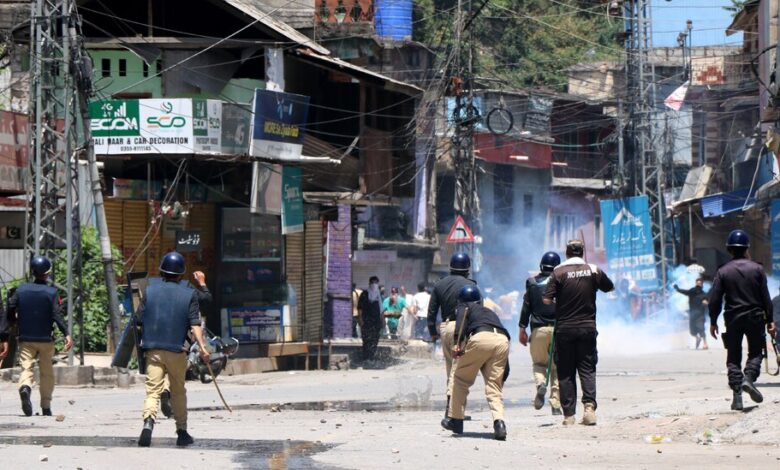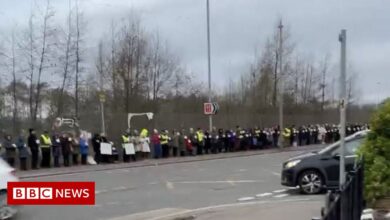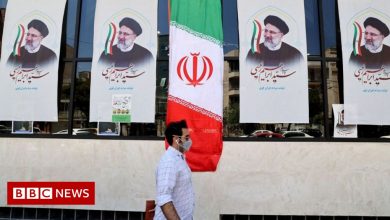Violent unrest due to economic conflict broke out in Pakistan’s Kashmir region

Massive protests have erupted in Pakistan-controlled Kashmir, fueled by anger over soaring electricity bills and flour prices in a region that has long suffered economically as a part of the region. conflict.
In an attempt to quell the growing unrest – which led to a widespread strike and left one police officer dead and 90 injured – Prime Minister Shehbaz Sharif convened an emergency meeting on Monday in Islamabad, the capital of Pakistan.
As protesters planned to march this week on Muzaffarabad, the regional capital, authorities suspended internet service in many areas and closed schools in the city.
“I have never witnessed such a large-scale uprising in Pakistan-administered Kashmir,” said Mubashar Naqvi, a resident of Muzaffarabad and a teacher at Azad University of Jammu and Kashmir. “This protest is unique because it unites people from all walks of life in demanding basic needs.”
The picturesque but highly militarized region of Kashmir, claimed by both Pakistan and India since they gained independence from Britain in 1947, has been the scene of three wars between the two countries. strange neighbors.
The current unrest poses a challenge to the Pakistani military, which maintains a heavy presence in the region, and the civilian leadership in Islamabad. Pakistan considers Kashmir a disputed territory whose status should be resolved through a United Nations-mandated referendum to allow Kashmiris to choose between becoming part of Pakistan or India .
But the Pakistani government has faced criticism for suppressing local movements demanding full independence. While there have been no strong calls for independence in the current wave of unrest, residents say the protests reflect a general sense of discontent.
“There is a strong sense of anger and frustration among Kashmiri youth, due to political frustration, high inflation and severe unemployment,” Mr. Naqvi said.
The unrest began on Friday when an activist group made up largely of traders initiated a strike in Muzaffarabad, which quickly led to violent clashes with law enforcement officers. The detention of Kashmiri activists in overnight raids has prompted calls for strikes.
Kashmiri authorities have urged protesters not to resort to violence. Faisal Mumtaz Rathore, a local government minister, said plans to send paramilitary troops were withdrawn as negotiations with protesters continued.
But the real solution, he said, lies with Pakistani national officials. “The great needs of the people, the need for cheap electricity and an end to blackouts, fall under the jurisdiction of the Pakistani government,” Mr. Rathore said.
The sector is highly dependent on government employment and receives little private investment due to its location.
As the protests entered their third day, the streets of Muzaffarabad remained quiet on Sunday. Security forces, identified by black bandannas, are clearly present at checkpoints. Citizens watched from behind closed windows, their daily routines disrupted and their supplies dwindling.
To ease hardship, protest organizers said essential stores could stay open for three hours every evening. Ayesha Bibi, 34, a resident of Muzaffarabad, expressed her anguish over the needs of her young child.
Mrs. Bibi said: “She hasn’t had milk for two days. “We can endure hunger, but being denied basic services like affordable electricity and flour is unbearable.”
Siddique Haidari, 68, another resident, lamented the widespread damage caused by the clashes. “Every house here shows damage,” he said.
Jalaluddin Mughal Report contributions.




